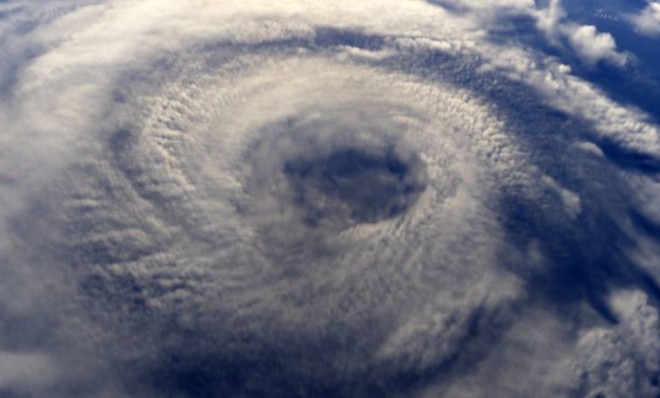Energy Department: Global warming made Hurricane Sandy worse
The latest evidence that climate change is already causing massive damage


A free daily email with the biggest news stories of the day – and the best features from TheWeek.com
You are now subscribed
Your newsletter sign-up was successful
Extreme weather patterns spawned by global warming are a serious threat to the nation's energy infrastructure, according to a new report from the Department of Energy, and their destructive effects are already being felt nationwide.
"Increasing temperatures, decreasing water availability, more intense storm events, and sea level rise will each independently, and in some cases in combination, affect the ability of the United States to produce and transmit electricity from fossil, nuclear, and existing and emerging
renewable energy sources," the report states.
The Week
Escape your echo chamber. Get the facts behind the news, plus analysis from multiple perspectives.

Sign up for The Week's Free Newsletters
From our morning news briefing to a weekly Good News Newsletter, get the best of The Week delivered directly to your inbox.
From our morning news briefing to a weekly Good News Newsletter, get the best of The Week delivered directly to your inbox.
In the most striking example, the report says climate change contributed to last year's powerful Hurricane Sandy, which ravaged the Northeast, closing ports, pipelines, and oil refineries, and knocking out power to some 8 million customers. And, the report warns, future storms will only get worse.
"The cost today is measured in the billions. Over the coming decades, it will be in the trillions," Jonathan Pershing, a DOE deputy assistant secretary who worked on the report, says in the New York Times. "You can't just put your head in the sand anymore."
That's the same argument President Obama made last month in his big climate speech, when he warned that global warming "demands our attention now." Obama laid out plans for capping carbon dioxide emissions, boosting green and renewable energy production, and upping emergency preparedness funding to address threats posed by climate change. Like the DOE report, he specifically cited Hurricane Sandy as a sign that manmade climate change already poses a significant threat to the nation's future.
The report begins by noting that 2012 was the hottest year on record, and that global temperatures have risen by 1.5 degrees in the past century. The report blames the temperature spike for an increase in wildfires, droughts, and intense storms, all of which have the potential to destroy or disrupt aspects of the nation's energy production and distribution systems.
A free daily email with the biggest news stories of the day – and the best features from TheWeek.com
Rising temperatures can also lead to an increased reliance on air conditioners, devices already known for taxing strained power grids in summer months. That could result in more frequent blackouts, especially in the West and South, the report warns.
The DOE also put out this interactive map showing past climate change–fueled natural disasters around the country, as well as their impact.
The report comes days after a separate study, published in Proceedings of the National Academy of Sciences, claimed that the world could see about 20 additional hurricanes and tropical storms per year due to global warming. In that study, Kerry Emmanuel, an atmospheric scientist at the Massachusetts institute of Technology, ran computer simulations that showed hurricanes becoming both more frequent and more powerful over the next century, especially around the 50-year mark.
Another study published by the National Oceanic and Atmospheric Administration in 2008 and revised last January said that while it was premature to say manmade global warming was already affecting hurricanes in the Atlantic, it was also too early to write off that possibility. As for future storms, the study said it was likely that they would be both bigger and more powerful, with a projected 20 percent increase in rainfall.
Jon Terbush is an associate editor at TheWeek.com covering politics, sports, and other things he finds interesting. He has previously written for Talking Points Memo, Raw Story, and Business Insider.
-
 AI surgical tools might be injuring patients
AI surgical tools might be injuring patientsUnder the Radar More than 1,300 AI-assisted medical devices have FDA approval
-
 9 products to jazz up your letters and cards
9 products to jazz up your letters and cardsThe Week Recommends Get the write stuff
-
 ‘Zero trimester’ influencers believe a healthy pregnancy is a choice
‘Zero trimester’ influencers believe a healthy pregnancy is a choiceThe Explainer Is prepping during the preconception period the answer for hopeful couples?
